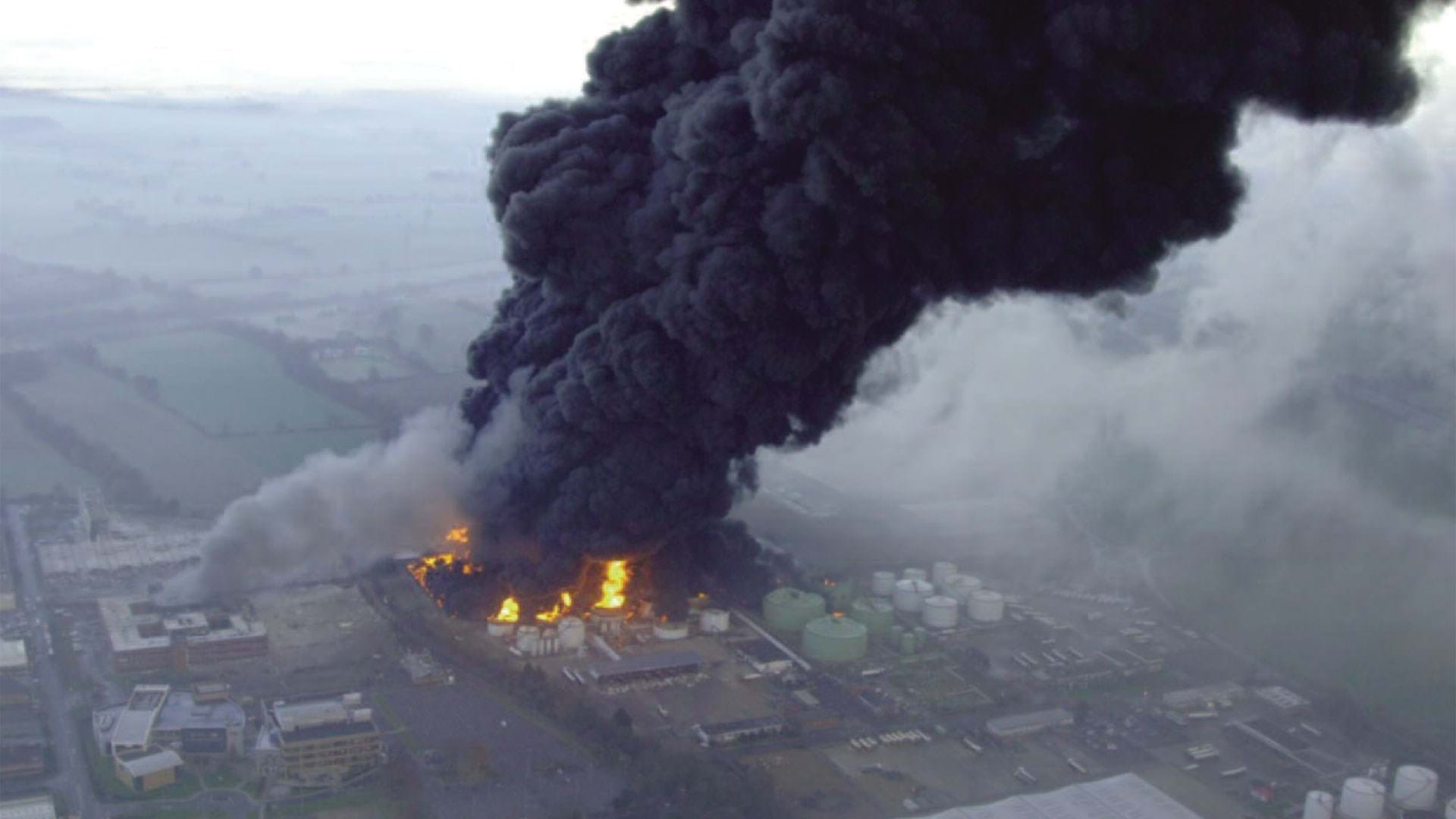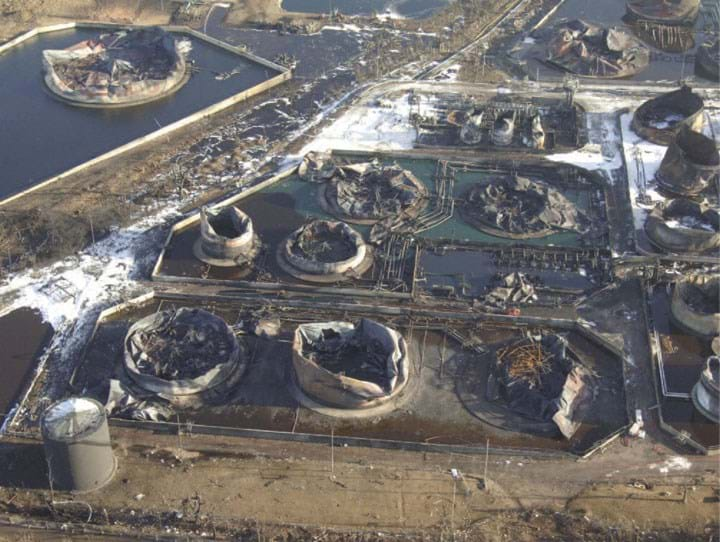What Just Happened?

Ivan Vince takes a look back at Buncefield, and the need for a new breed of ‘remembrancers’
DO YOU remember all the bewilderment in 2005 when a huge vapour cloud at the UK’s Buncefield Fuel Oil depot detonated? There was the security guard Raheel Ashraf, who at that moment was checking the top floor of the building next door. Miraculously unhurt amid the ruins of the building, he regained consciousness, with every right to be bewildered. There were all the people, startled awake before dawn, bewildered by the pall of smoke that would go on to reach as far as northern France.
And then weeks later, with rather less excuse, there were all of us bewildered professionals scratching our heads (with one notable exception* shaking his) over the “unprecedented” explosion – that turned out to have been amply precedented (Newark NJ 1983, Naples 1985, Nantes 1991 and so on), and reported in high impact journals.
Even the blast overpressure mechanism had been published, just the previous year, in the Journal of Loss Prevention in the Process Industries (Leal, CA and Santiago, GF, 17, 217-224), under the far-from-obscure heading Do Tree Belts Increase Risk of Explosion for LPG Spheres? (Spoiler alert: they do!)
Trevor Kletz, oracle of process safety, coined the phrase “corporate forgettory” to explain how the same accidents keep happening again and again, sometimes even within the same company. “In medieval England”, he mused, “there were officials called remembrancers, whose job was to remind the King’s courts of matters that they might otherwise forget.”
Trevor Kletz, oracle of process safety, coined the phrase “corporate forgettory” to explain how the same accidents keep happening again and again, sometimes even within the same company. “In medieval England”, he mused, “there were officials called remembrancers, whose job was to remind the King’s courts of matters that they might otherwise forget.”

I (and my co-authors) offer the Trevor Kletz Compendium – His Process Safety Wisdom Updated for a New Generation as modern-day “remembrancers” partly in our own right, as our contribution to hold back the tide of forgetting. Old stories for both old hands and new, but old hands will find much that is new – Kletz for a post-Kletz world. Mostly, however, our book is cunningly devised as bait to hook the reader into (re)visiting the Kletz book canon of more than a dozen titles, and to keep dipping into them from time to time, following the exhortation of Jorge Luis Borges: “read fewer books more often: re-reading, not reading, is what counts.”
Process safety depends on teamwork. Why not use the Calendar of Disasters in the appendix of the Compendium as a focus for team exercises? The Calendar commemorates a major accident occurring in each month of the year, with bonus entries for June and December. Following a brief description of the accident, each summary includes unheeded warning events, contributing factors, lessons learned and references to more comprehensive treatments. And everything you need to reflect uneasily on your own installation and answer the question: it couldn’t happen here, could it?
*The “notable exception” I mentioned earlier, re Buncefield, was of course none other than Trevor Kletz, who had predicted just such an event nearly 20 years earlier: Will Cold Petrol Explode in the Open Air? The Chemical Engineer, June 1986, p63 (extract reprinted after the incident: LPB (2006) 188, p9).
Recent Editions
Catch up on the latest news, views and jobs from The Chemical Engineer. Below are the four latest issues. View a wider selection of the archive from within the Magazine section of this site.




